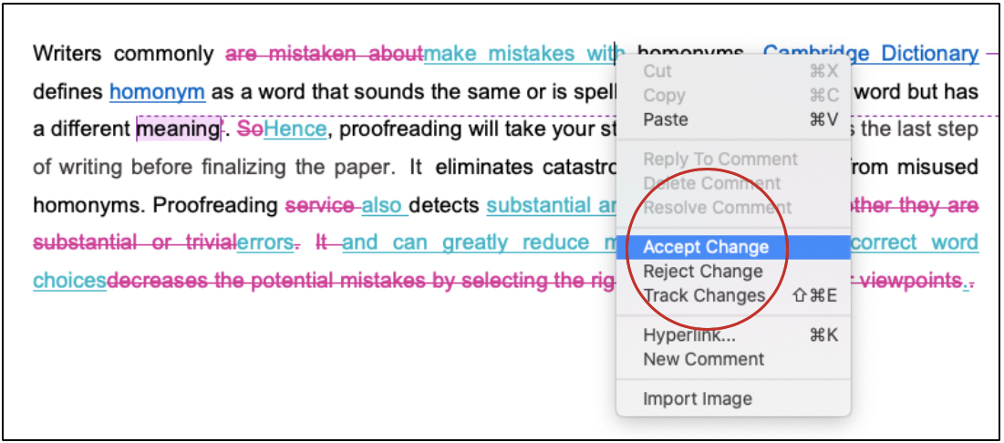Writing a research paper involves scrutinizing a plethora of research material to bring forth plausible conclusions. However, no matter the degree of impeccability and thoroughness of the research, successfully transmuting it into words takes a grave amount of practice and endurance. Thus, it is not uncommon to see amateur and even veteran scholarly writers commit research writing mistakes in their papers now and then. Following the narrative, this article will describe 5 research writing mistakes that frequently blemish the works of academic writers. It will also shed some much-needed light on the tips to amend and avoid these mistakes.

Writing a research paper involves scrutinizing a plethora of research material to bring forth plausible conclusions. However, no matter the degree of impeccability and thoroughness of the research, successfully transmuting it into words takes a grave amount of practice and endurance. Thus, it is not uncommon to see amateur and even veteran scholarly writers commit research writing mistakes in their papers now and then.
Committing mistakes and rectifying them as and when they occur is an appreciable move. It showcases the academic integrity of a writer. But it also takes a significant amount of time and resources. Hence, what is better appreciable is developing the ability to foresee and bypass these mistakes.
Following the narrative, this article will describe 5 research writing mistakes that frequently blemish the works of academic writers. It will also shed some much-needed light on the tips to amend and avoid these mistakes.
The descriptions of the mistakes expounded upon here aim to inform research writers about their characteristics. As such, readers should exhaustively read them to imprint their nature in their minds and thereon detect them with ease.
For a research paper, or, for the matter, any academic document, citations are of utmost importance. They
inform the readers about the sources an author has referred to whilst writing the manuscript.
acknowledge the hard work of the writers of the referred sources.
allow readers to fact-check the contents of the text at hand and much more.
In short, citations are vital to the overall credibility of an academic document.
However, one needs to know when and how to incorporate citations into their work. And it is due to the fact that many budding research writers make errors while citing sources.
Citation mistakes arise when authors either use incorrect citation styles or indeliberately miss a reference. For instance, they have paraphrased a section from a published research work but skipped including the source in parentheses. Or, they have quoted a few lines from another text and mentioned the correct source but cited it incorrectly.
Such mistakes can render an academic document less legible as well as introduce plagiarism.
Thus, to negate citation errors, one should garner adequate knowledge about the various citation styles and citations in general. Also, prior to commencing the writing process, researchers should enquire with their supervisors about the specific citation requirements.
Proofreading is a process that essentially fine-tunes the readability of a manuscript. It eliminates grammatical, linguistic, and contextual errors from a text and ultimately offers it the desired academic preciseness. However, proofreading lies at the bottom of the priority list of many a writer.
Some writers proofread in conjunction with the writing process. Others set aside little time to proofread their works, leaving much to be desired in them.
Thus, research writers should make it a habit to proofread their works timely and with precision. One can also employ the services of professional editing and proofreading services in case of linguistic limitations.
Plagiarism is one of the, if not the most, frowned upon academic practices in academic writing. It occurs when one copies lines, paragraphs, or even ideas of others without attributing them properly. And no matter if the copied content consists of nothing more than a single quote, the degree of offence is the same.
Plagiarism can be deliberate or unintentional, with the latter recurring more in the works of budding research writers. However, both types carry similar repercussions.
The most effective way to avoid plagiarism is to cite sources wherever necessary. Also, one should expand their research catalog to include more works and allow adequate time to peruse them. This way, they can allot more time to understand the subject matter and develop a proprietary writing style.
How to Choose the Right Plagiarism Checker for Your Academic Works
How to Paraphrase in Academic Writing: A Comprehensive Guide
Academic writing is more objective and complex than its conventional counterpart. And one of the factors lending it these characteristics is academic jargon. Jargon refers to words and phrases native to a particular field or genre.
Not including enough jargon in their works delineates an author's inadequate knowledge of their field of study. Hence, research writers should document and practice using academic words and phrases relevant to their subject matter.
Structuring issues are a more regular phenomenon in the writings of amateur academic writers. As the word count increases, writers find it difficult to demarcate the various sections of their works. This, in turn, leads to the text becoming a potpourri of arguments and facts.
To avoid structural issues, research writers should first draft an outline of their manuscript. Next, they should address each section in the draft individually while maintaining smooth transitions between them.
Research writing is a sub-genre of academic writing that every academic must come across at least once. Thus, one should strive to know the various research writing mistakes and learn how to avoid them.
Best Edit & Proof expert editors and proofreaders focus on offering manuscripts with proper tone, content, and style of academic writing, and also provide an upscale editing and proofreading service for you. If you consider our pieces of advice, you will witness a notable increase in the chance for your research manuscript to be accepted by the publishers. We work together as an academic writing style guide by bestowing subject-area editing and proofreading around several categorized writing styles. With the group of our expert editors, you will always find us all set to help you identify the tone and style that your manuscript needs to get a nod from the publishers.

You can also avail of our assistance if you are looking for editors who can format your manuscript, or just check on the particular styles for the formatting task as per the guidelines provided to you, e.g., APA, MLA, or Chicago/Turabian styles. Best Edit & Proof editors and proofreaders provide all sorts of academic writing help, including editing and proofreading services, using our user-friendly website, and a streamlined ordering process.
Visit our order page if you want our subject-area editors or language experts to work on your manuscript to improve its tone and style and give it a perfect academic tone and style through proper editing and proofreading. The process of submitting a paper is very easy and quick. Click here to find out how it works.
Our pricing is based on the type of service you avail of here, be it editing or proofreading. We charge on the basis of the word count of your manuscript that you submit for editing and proofreading and the turnaround time it takes to get it done. If you want to get an instant price quote for your project, copy and paste your document or enter your word count into our pricing calculator.
Contact us to get support with academic editing and proofreading. We have a 24/7 active live chat mode to offer you direct support along with qualified editors to refine and furbish your manuscript.
Follow us on Twitter, LinkedIn, Facebook, Instagram, and Medium.
For more posts, click here.
This article discusses 5 common research writing mistakes and gives some essential tips to avoid them. To give you an opportunity to practice proofreading, we have left a few spelling, punctuation, or grammatical errors in the text. See if you can spot them! If you spot the errors correctly, you will be entitled to a 10% discount.
How to Determine Variability in a Dataset
14.10.2023
How to Determine Central Tendency
19.02.2023
How to Specify Study Variables in Research Papers?
14.01.2023
Population vs Sample | Sampling Methods for a Dissertation
14.01.2023
How to Ensure the Quality of Academic Writing in a Thesis and Dissertation?
04.12.2022
How to Avoid Anthropomorphism in Your Dissertation?
04.11.2022
How to Write a Research Methodology Section for a Dissertation and Thesis
07.08.2022
How to Write a Theoretical Framework for a Dissertation and Thesis?
05.08.2022
How to Write Literature Review for a Dissertation and Thesis
02.08.2022
How to Write a Dissertation and Thesis Introduction
31.07.2022

Starting an academic study can be an overwhelming task. After all, it is a very systematic way of studying and involves many procedures and methods that you cannot skip or go around. One of the most prominent parts of research is the research methods that you adopt to get your results.
Continue Reading
Writing articles for journals requires scholars to possess exceptional writing skills and awareness of their subject matter. They need to write such that their manuscript relays its central idea explicitly to the readers. In addition, they need to abide by strict writing conventions and best practices to befit the parameters of journal articles. It is not uncommon for research initiates and, at times, even experts to struggle with the article writing process. This article aims to mitigate some apprehension associated with writing journal articles by enlisting and expounding upon some essential writing tips.
Continue Reading
Researchers develop theories to explain phenomena, build connections, and make educated guesses. Therefore, you illustrate the existing ideas supporting your dissertation or thesis in a theoretical framework, depicting that your work has a solid foundation.
Continue Reading